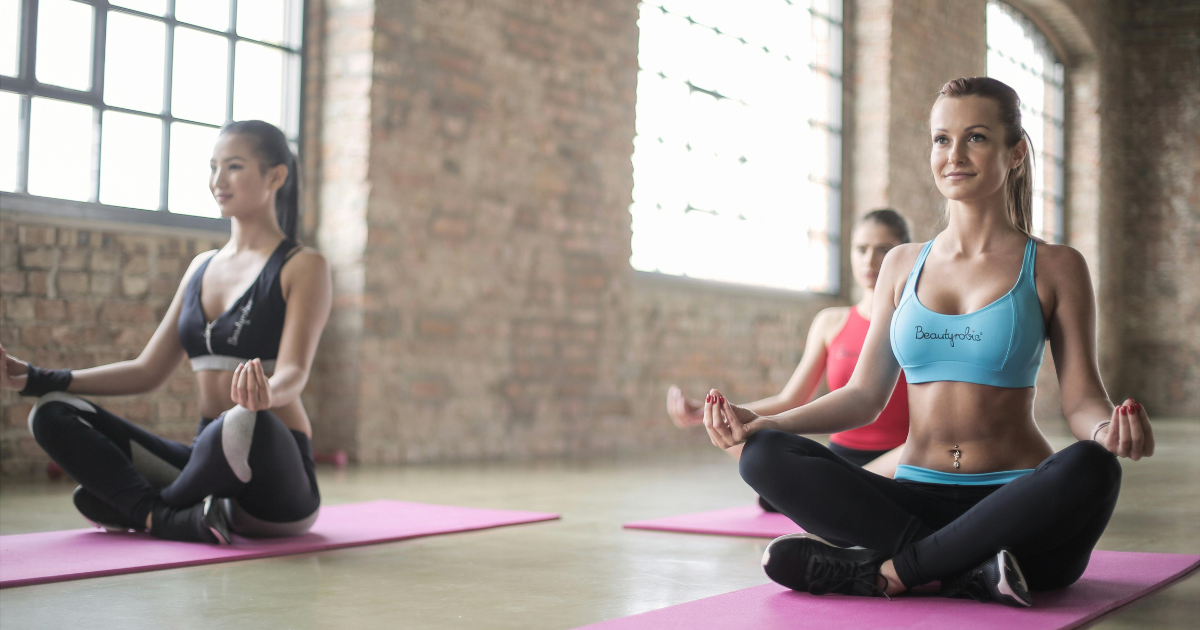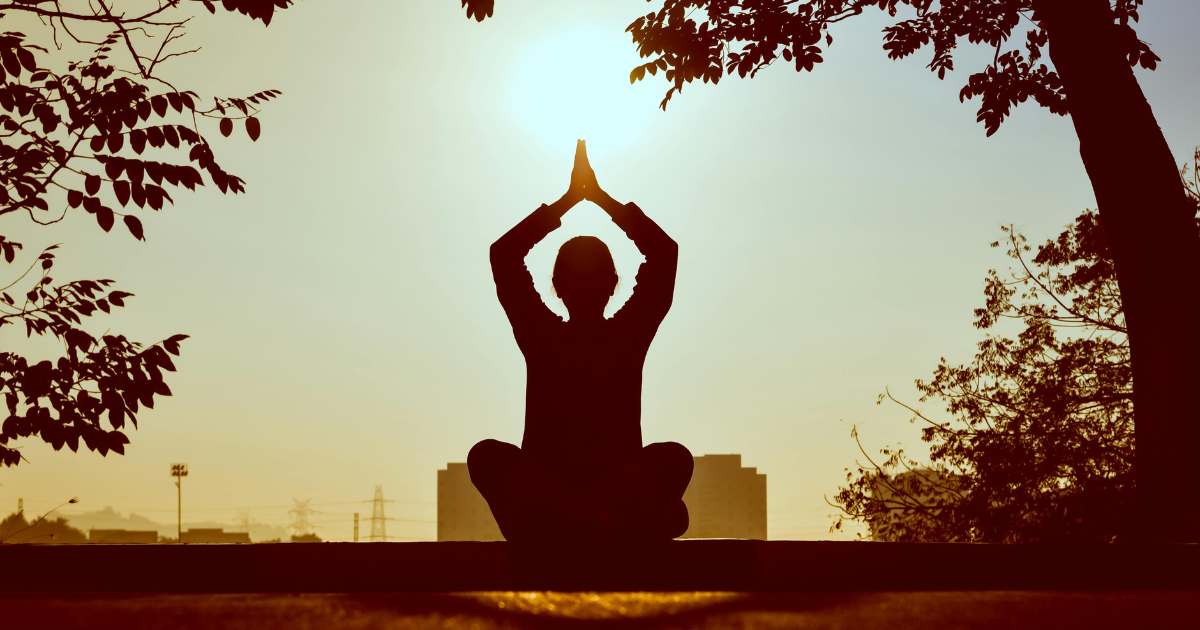Celebrated for its transformative potential in bringing harmony to body and mind, this practice has been highly and enormously beneficial compared to its completely crossing the horizon beyond its known physical benefits. This blog post aims to cover the many benefits of yoga concerning mental health and how it can be used to manage anxiety, stress, and emotional challenges, entering a state of balance and calmness in life.
Yoga and Mental Health
Yoga is beyond a simple exercise; it is a more holistic practice that benefits the physical and mental body by taking movement, breath control, and mindfulness together to serve as an abode away from all stress in life. It is found that regular yoga practice enhances focus, mood swings, and stability because of mental well-being through yoga practices.
Why Yoga is Effective for Mental Health
- Mind-Body Connection. Yoga enables you to be cognizant of thoughts and emotions while keeping you grounded in the present.
- Reduces stress. Yoga, with deep breathing and meditation, actually assists in decreasing the production of the cortisol stress hormone in the body.
- Manages emotions. Yoga practice can give one more control over emotional responses and help build resilience.
Regarding the practice of yoga for mental health, the impacts are not just short-term but even long-term ones that can provide excellent support for avoiding emotional instability.
How Yoga Supports Mental Health
Some of the contributions yoga can make to mental health are soothing the nervous system, calming one’s mind, and helping one become mindful. Here is how that may be applied to mental health:
Stress Relief
One of the best-known mental health benefits of yoga is the stress-reducing factor. Yoga primes the parasympathetic nervous system to be calmer because it focuses on breath, movement, and breathing. So, if you feel at ease once you get into the nitty-gritty, especially when times are tough, regular practice can quickly come in handy.
Improved Sleep
Most people with sleep disorders associate their problems with stress and anxiety. Yoga can be an excellent way to improve sleep quality, especially in the calming mind state, it relaxes the body before sleep. Softer asanas and pranayamas are good for quality sleep.
Enhanced Self-Awareness
Yoga teaches awareness, and you can listen to your thoughts and feelings without judgment. This high consciousness may result in better emotional control and decision-making.
The Science Behind Yoga’s Mental Health Benefits
Modern science has revealed much knowledge on yoga’s positive effects on mental health. Studies indicate that yoga affects the brain and body remarkably, providing insights into why it effectively manages stress and anxiety.
| Effect | Explanation | Impact on Mental Health |
| Reduces Cortisol | There is more proof to show that yoga reduces cortisol levels, which helps people fight chronic stress. | Relatively low levels of cortisol correlate with mood improvement, better sleep, and reduced anxiety. |
| Boosts Neurotransmitters | It enhances the levels of neurotransmitters such as serotonin and dopamine. | These are essential to keeping individuals in good moods and emotional stability. |
| Improves Brain Function | Yoga enhances concentration and Memory by reinforcing neuroplasticity. | The brain’s ability to Form new connections and adapt. |
You will find why people are turning to yoga today for an old answer to modern mental health issues once you learn how science works in the theory of yoga and stress relief.
Types of Yoga Beneficial for Mental Health
While not all yoga styles are the same, there are a lot of individual benefits that could be obtained from these practices. Some of the most effective types of yoga for mental health are discussed below:
| Yoga style | Description | Benefit for Mental Health |
| Hatha Yoga | This style is considered good yoga for beginners because of its gentle poses and slow movements. | It focuses primarily on breathing and relaxation, making it ideal for people who need stress relief and emotional balance. |
| Yin Yoga | This meditative style holds the poses for longer, deep relaxation is encouraged by letting go of tension. | Yoga is particularly beneficial for anyone interested in yoga and stress relief. |
| Restorative Yoga | It allows recovery and rest using props like blankets and bolsters to support the body in comfortable poses. | This practice is good for people involved in trauma or very high stress. |
| Vinyasa Flow | Vinyasa Flow combines movement with breath in a rhythmic pattern, producing a meditative cadence. | The flow benefits those who enjoy dynamic flowing sequences that release pent-up stress and energy. |
Yoga Poses for Stress Relief and Relaxation
Some yoga poses are particularly good at freeing you from stress. They are easy enough to do and help you a lot right away.
Child’s Pose (Balasana)
Child’s Pose brings the lower back and hips into alignment, calms the mind, and helps restore balance and peace when feeling out of whack. It’s one of those comforting postures when you need to ground down. This resting pose is super relaxing.
Cat-Cow Pose (Marjaryasana-Bitilasana)
Gentle movement can massage the tension out of the spine so that you may come into the present moment with each synchronized breath.
Legs-Up-The-Wall Pose (Viparita Karani)
Restorative posture to help with anxiety and blood flow. Great de-stressor after a difficult day.

Corpse Pose (Savasana)
It is a simple but powerful resting pose. It is commonly used at the end of a yoga practice class to integrate the emotions or improvements received from the practice.
These are some of the most outstanding examples of what can be accomplished by using yoga for mental health to escape from stress and find inner peace.
Yoga for Anxiety, Depression, and Trauma
Yoga is increasingly being seen as a resourceful tool for some of the battles that one has to fight with one’s mental health, which are stress, anxiety, depression, and trauma.
Yoga for Anxiety
The following are some of the yoga practices that reduce anxiety. They include education in deep, mindful breathing and grounding poses. Such activities invoke the body’s relaxation response, thereby dispersing anxiety symptoms.
Yoga for Depression
Yoga, using gentle movements and meditation, stimulates the release of endorphins, which are natural mood lifters. Over time, routine practice eventually results in improved overall emotional stability.
Trauma-Informed Yoga
This is a safe space for people to reconnect with their bodies and emotions. A trauma-informed culture that supports healing will help people’s trauma-informed journey. Trauma-informed yoga is an overarching foundation that focuses on trauma-sensitive therapies. It has been applied in mental health recovery programs all over the world.
The benefits of yoga for anxiety and other mental health conditions highlight its versatility as a therapeutic practice.
Tips for Starting a Yoga Practice for Mental Wellness
There is no intimidating factor associated with a yoga practice. Here are some tips for you to get started:
- Set Realistic Expectations. Begin with short sessions and allow your comfort levels to increase in time.
- Find a Suitable Space. Develop a quiet, clutter-free area where you can practice without any distractions.
- Focus on Consistency. Even if it is for 10–15 minutes a day, regular yoga practice produces great results.
- Seek Training. Take a class or online tutorials to be adequately trained in proper technique.
By following these steps, you’ll be well on your way to unlocking the mental health benefits of yoga in this outstanding practice.
Incorporating Yoga Into Daily Life
Yoga doesn’t require a mat or a yoga studio to be practiced; it can be infused into every aspect of your day:
- Start your day with a short flow to get you off to a good start.
- Practice breathing exercises during stressful work or school moments.
- Wind down at the end with restorative postures at night, thus improving sleep.
Through your life, include yoga and thus see long-term improvement in your mental well-being through yoga.
Embracing Yoga for Mental Health
Yoga is a path of self-discovery and healing. Whether one is looking for yoga and stress relief, to manage anxiety, or for a general need to know how one can improve one’s mental well-being, then yoga has a lot to offer. The mind-calming features, soothing of the body, and balancing of emotions make it a foundation for holistic mental health care.v
Call to Action
Are you ready to feel the transformative power of yoga? Let’s start now and unlock its profound mental health benefits. In the comment section, let us know your journey, or give us feedback about how yoga has affected your life. Let’s find some balance and calm together!

FAQs
Can yoga improve mental health?
Yes, yoga is highly effective in improving mental health. By reducing stress hormones like cortisol, enhancing mood-regulating neurotransmitters, and fostering mindfulness, yoga helps alleviate anxiety, depression, and stress. Regular practice can also improve emotional resilience and overall mental well-being.
What are the best yoga styles for mental health?
Gentle styles like Hatha, Yin, and Restorative Yoga are particularly beneficial for mental health. These practices emphasize relaxation, mindfulness, and slow movements, ideal for reducing stress and promoting calmness. Vinyasa Flow and Trauma-Informed Yoga can also support emotional healing.
How often should I practice yoga for mental health benefits?
Consistency is key. Even 10-15 minutes a day can yield positive results. Aim for 3-5 weekly sessions for significant mental health improvements, combining gentle poses, breath work, and meditation.
Can yoga help with anxiety and panic attacks?
Yes, yoga is an excellent tool for managing anxiety and even panic attacks. Techniques like deep breathing, grounding poses, and mindfulness exercises activate the body’s relaxation response, helping to calm the mind and reduce anxiety symptoms.
Do I need to be flexible enough to practice yoga for my mental health?
Not at all! Yoga is about connecting your body and mind, not achieving perfect poses. Many yoga styles, such as Restorative Yoga, are accessible to beginners and focus on relaxation and mindfulness rather than physical flexibility.








